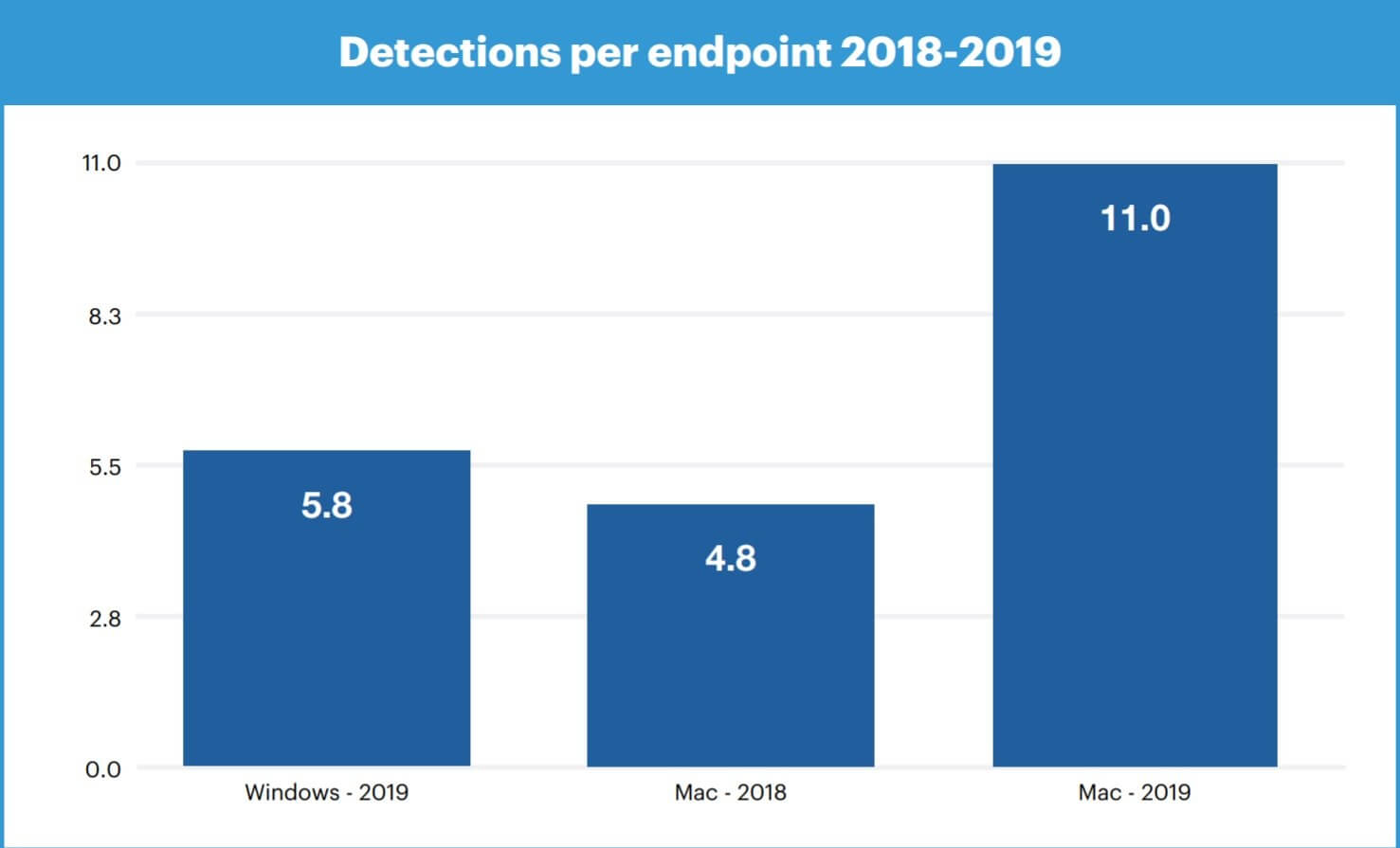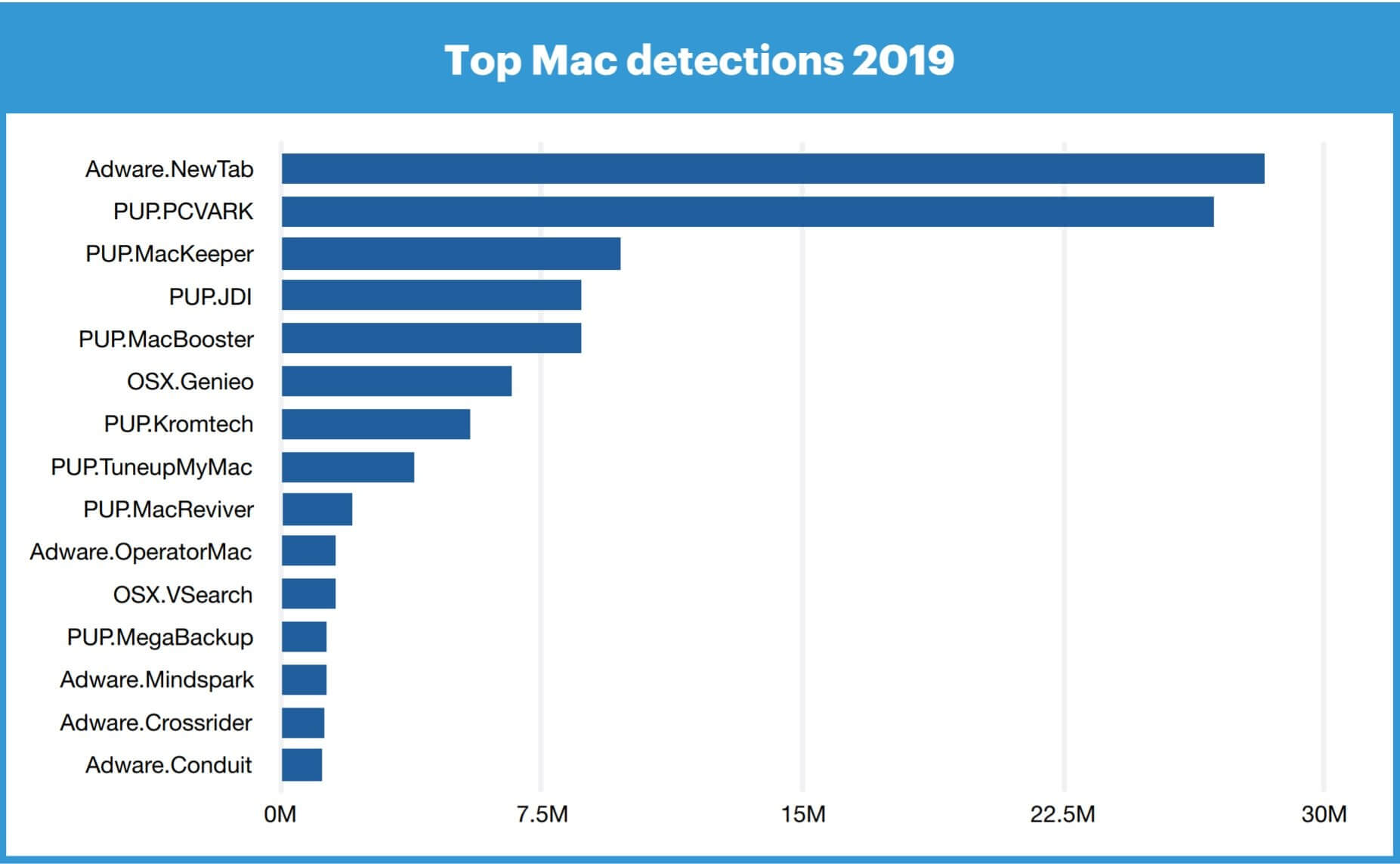Why it matters: “Macs don’t get viruses,” or so the long-time saying goes. But according to Malwarebytes’ annual State of Malware report, that’s far from true. In fact, there was almost double the number of threats targeting Macs compared to Windows PCs in 2019.

The report states that Macs saw an average of 11 threats per endpoint in 2019, whereas Windows systems had an average of 5.8 threats—the first time Macs outpaced PCs when it comes to malware threats.

In 2018, there were just 4.8 Mac threats detected per endpoint, meaning there's been a 400 percent YoY jump. Malwarebytes notes that part of the increase can be attributed to a rise in the Mac userbase but said that "when calculated in threats per endpoint, Macs still outpaced Windows by nearly 2 to 1."
"The increase in Mac endpoints with Malwarebytes installed only increased around 40 percent from 2018 to 2019. So, although this growth is definitely a factor, it is far too small to account for the growth in malware," Malwarebytes' Thomas Reed, director of Mac and mobile, told The Register.
Adware and Potentially Unwanted Programs (PUPs) were the most prevalent threats for Macs. NewTab, which is installed as a browser extension or app that loads ads, was detected around 30 million times. Adware was also the biggest threat to Windows devices
Businesses are also being targeted more often, with a 13 percent increase in threats against companies. And while ransomware detections declined slightly from 2018 due to a lower rate of WannaCry detections leftover from 2017, Ryuk detections were up 543 percent, and Sodinokibi detections jumped 820 percent. According to a recent New York Times report, ransomware attacks were up 41 percent last year as average ransom payments reached $190,94.
With more Macs being targeted, Malwarebytes writes that Mac users can "no longer say that their beloved systems are immune from malware."
https://www.techspot.com/news/83984-macs-saw-almost-double-number-malware-threats-than.html
